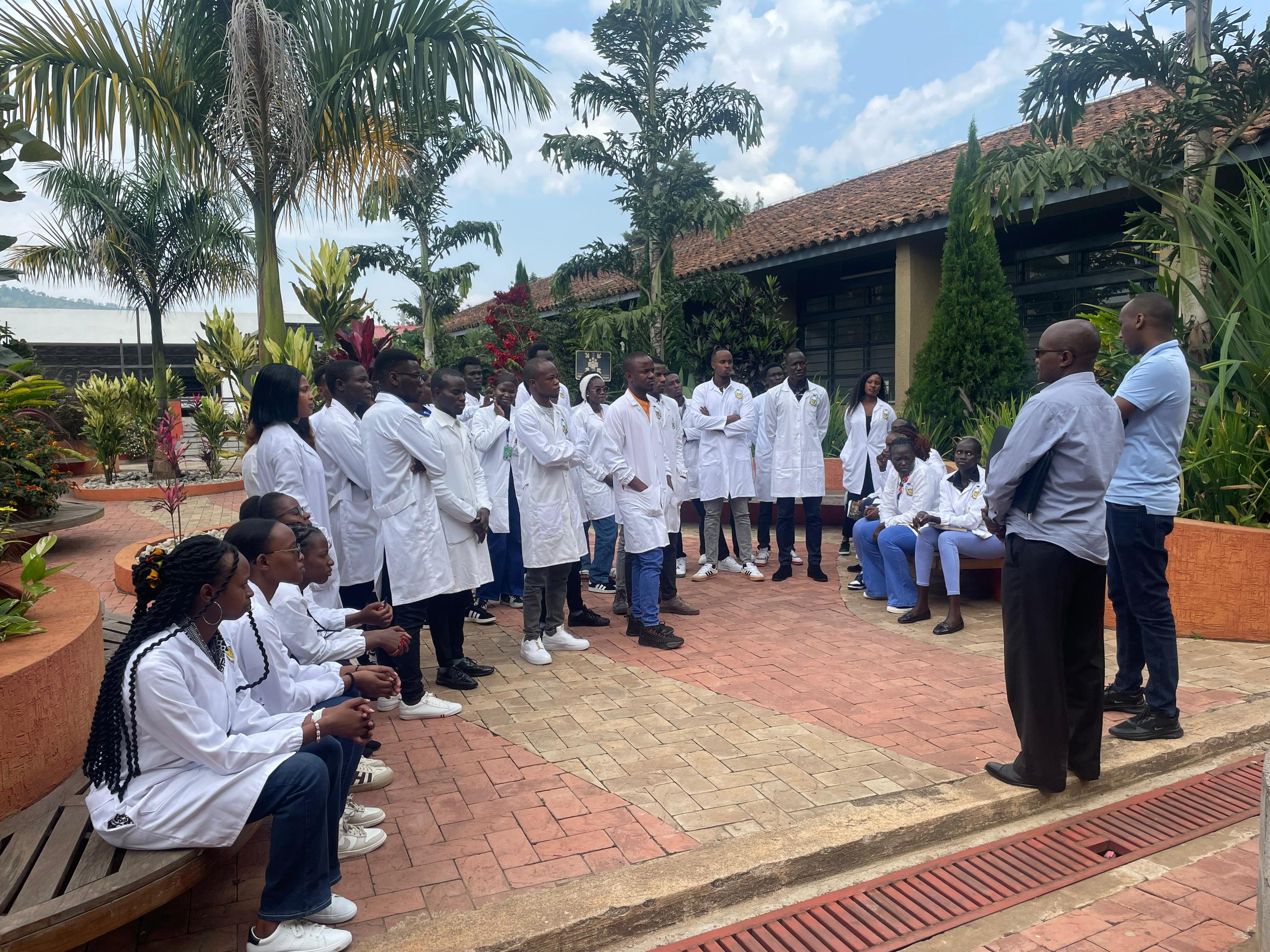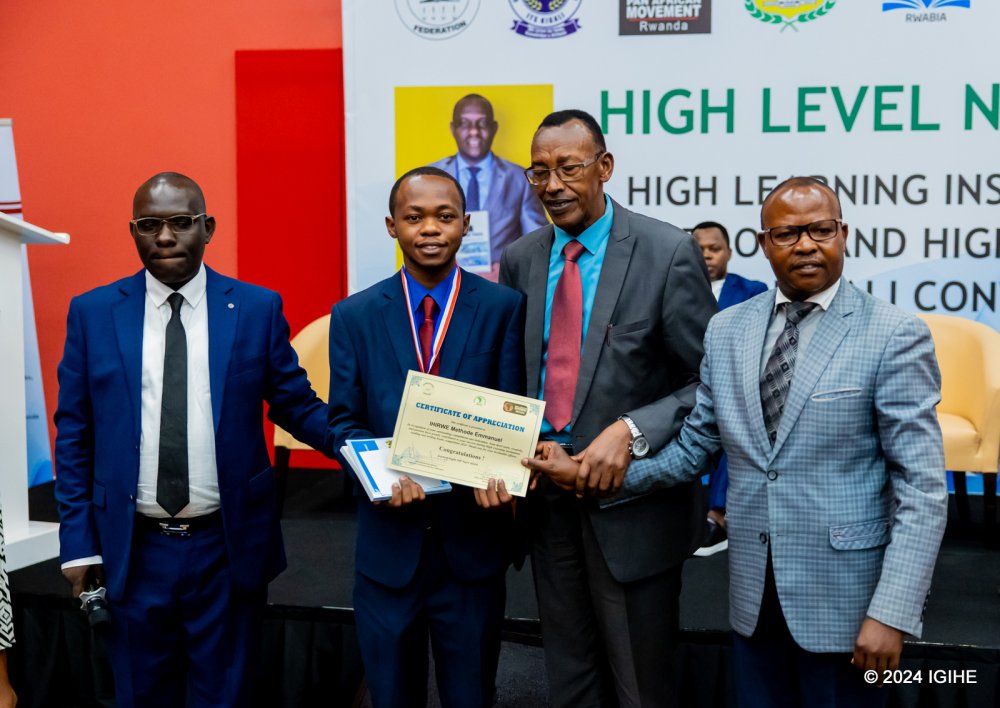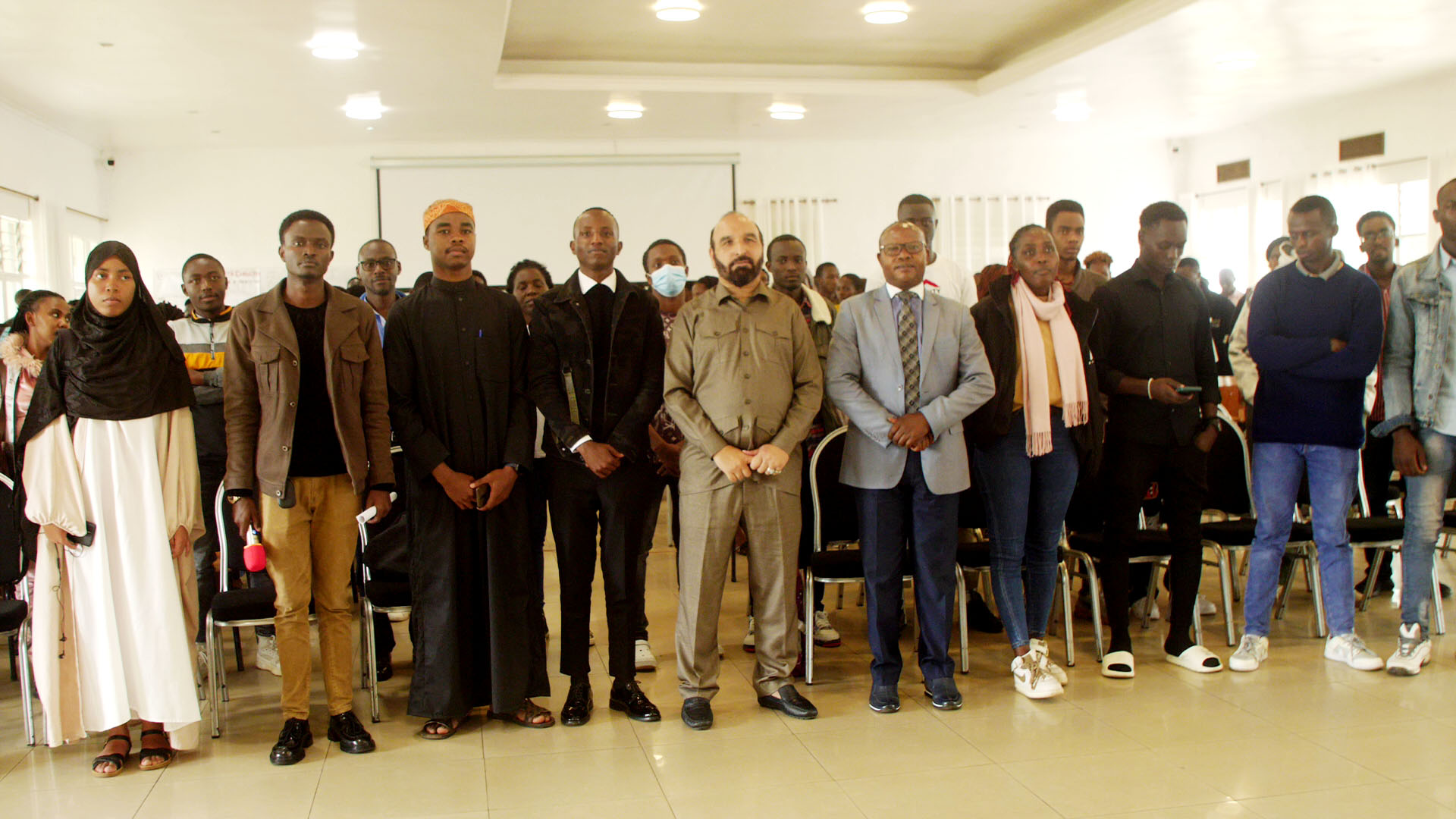Empowering Rwanda’s Agricultural Sector Through Innovation: F2FinRW Phase 2 Training Workshop and Certification
On January 17, 2025, INES-Ruhengeri had the honor of hosting the 3rd Training Workshop and Certification Issuance for the Farm to Fork Supply Chain and Ecosystem Project in Rwanda (F2FinRW) Phase 2 at the university's Main Hall. The event gathered lecturers from INES, project partners, stakeholders, and beneficiaries to strengthen Rwanda’s agricultural ecosystem through cutting-edge technology and knowledge sharing.
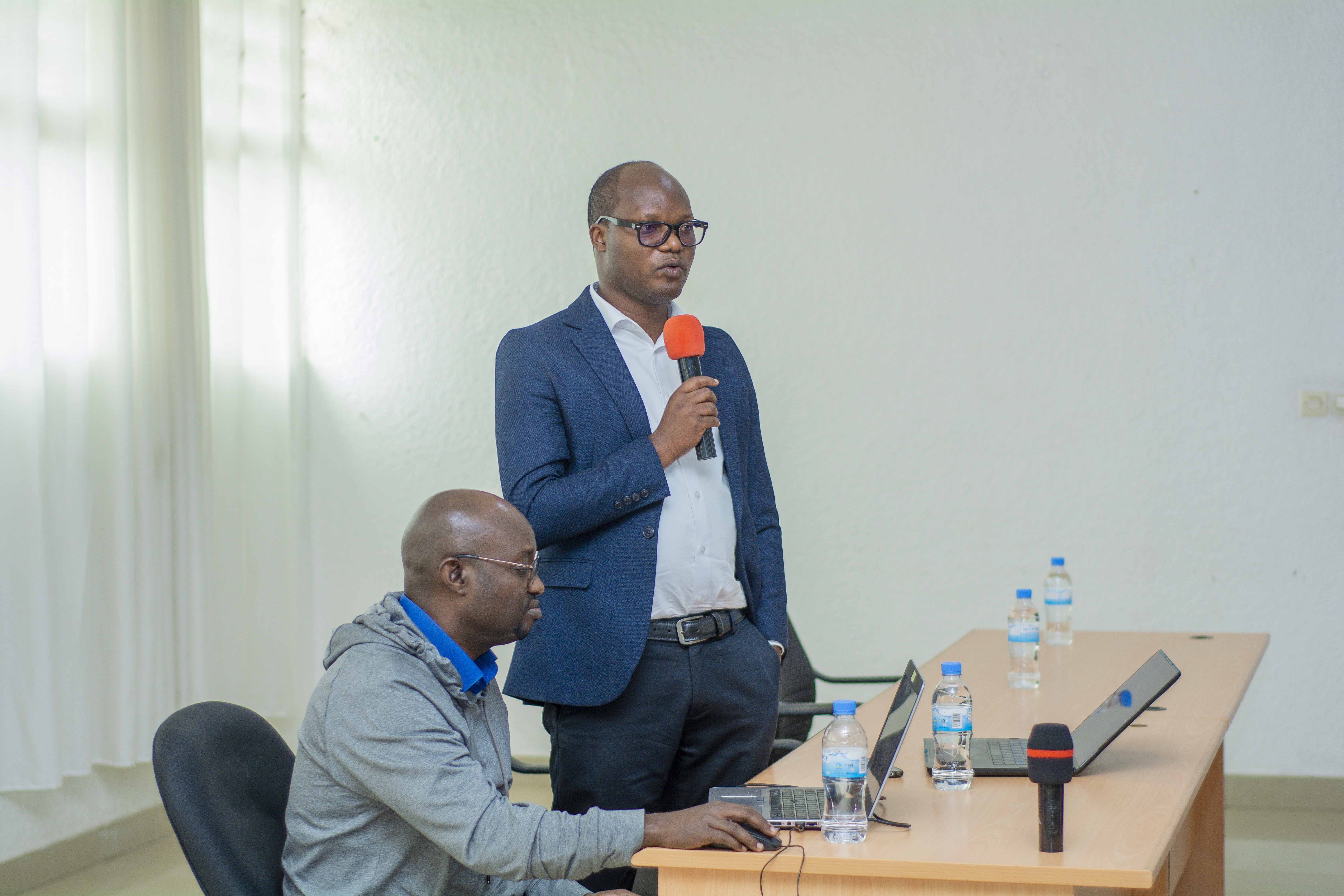
During the presentation by Prof. Kamana Emmanuel, the Initiator and
Project Coordinator, on the overview of the project’s current situation, he
explained how the workshop deepened participants’ understanding of innovative
practices in Rwanda’s agricultural sector. Key training sessions included:
✅ IoT
Sensors & Farm Advisory System (FAS): Participants explored how
Internet of Things (IoT) sensors enhance farm productivity by providing
real-time data on soil and weather conditions, enabling informed
decision-making to boost crop yields.
✅ Seed
Multiplication: A key focus was the increased production of potato
plantlets, with over 66,000 produced and 47,780 already sold. This effort aims
to strengthen the potato farming sector’s seed supply.
✅ Farmer
Training: More than 1,000 farmers received training on potato seed
production methods, integrated pest management, and the use of the ShambAssist
Agricultural Advisory System, equipping them with skills to improve
productivity and quality.
Achievements and Milestones
The F2FinRW Phase 2 project has achieved remarkable milestones in
modernizing Rwanda’s agricultural practices, including:
✅ Deployment
of IoT Sensors: Eight farms in Nyabihu, Rubavu, Musanze, and Burera
districts have been equipped with IoT sensors, collecting data on soil
moisture, temperature, wind speed, and sunlight intensity. This data is
analyzed and shared with farmers via the Farm Advisory System (FAS) to optimize
practices.
✅ Lab
Seed Multiplication: The project has successfully multiplied potato seeds
in laboratory settings, with 66,610 plantlets produced and further growth
anticipated.
✅ E-Marketplace
Launch: The introduction of an e-marketplace (OneBasket) provides
farmers direct access to buyers, enhancing market accessibility and reducing
sales challenges.
Ongoing Activities and
Future Plans
The project continues to pursue activities to support Rwanda’s
agricultural growth:
✅ Seed
Multiplication and Monitoring: Ongoing efforts to monitor seed
multiplication ensure the production of high-quality seeds.
✅ Training
and Certification: Training sessions will continue, with certifications
awarded to participants upon completion.
✅ IoT
Sensor Monitoring: Continuous monitoring of IoT sensors and FAS ensures
ongoing access to data-driven insights for improved farming practices.
Addressing Challenges and
Mitigating Risks
As with any innovative initiative, F2FinRW Phase 2 has faced challenges,
including:
✅ Internet
Connectivity: Poor internet connectivity in remote areas like Nyabihu has
affected IoT sensor use. The team is exploring alternative mobile network
operators to address this issue.
✅ Farmer
Adaptation: Some farmers struggle to adapt to new technologies. To resolve
this, SPIDERBIT conducted one-on-one training sessions in January 2025.
✅ Farmer
Ownership: Engaging farm owners directly in training sessions is critical.
The INES team is ensuring that farm owners, not just employees, participate
actively.
Looking Ahead: The Way
Forward
The F2FinRW Phase 2 Project remains committed to making a lasting impact
on Rwanda’s agricultural sector. Future plans include:
✅ Expanding
Seed Multiplication: Strengthening efforts to ensure a steady supply of
high-quality potato seeds.
✅ IoT
Device and FAS Monitoring: Maintaining optimal functionality of IoT sensors
and FAS to support farmers.
✅ E-Marketplace
Onboarding: Encouraging more farmers to join the OneBasket platform
for streamlined product sales.
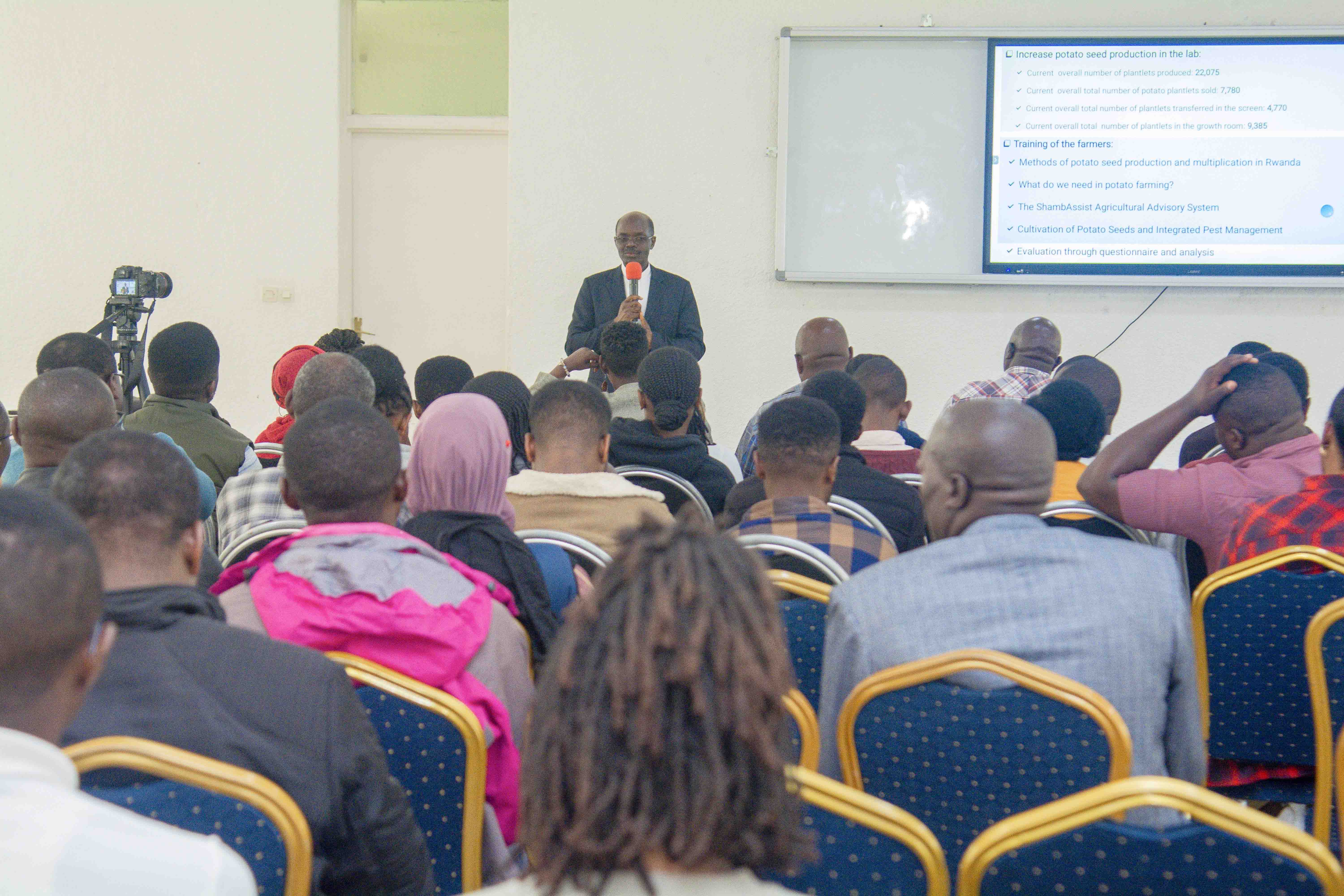
The Vice-Chancellor of INES-Ruhengeri, Fr. Dr. BARIBESHYA Jean Bosco,
who officially opened and closed the event, expressed satisfaction with the
project’s impact, stating:
“This is an opportunity to reflect on our collective journey and to
share ideas. As Prof. Kamana highlighted, developing our nation requires
everyone’s contribution, and most initiatives have a starting point. Where we
are now is not an endpoint; we are still in the early stages of leveraging
technology to improve agricultural productivity.”
He added:
“Our mission is to continue educating and conducting research that
addresses community challenges.”
At the conclusion of the training, participants received certificates and expressed their excitement about the project’s empowerment and impact.
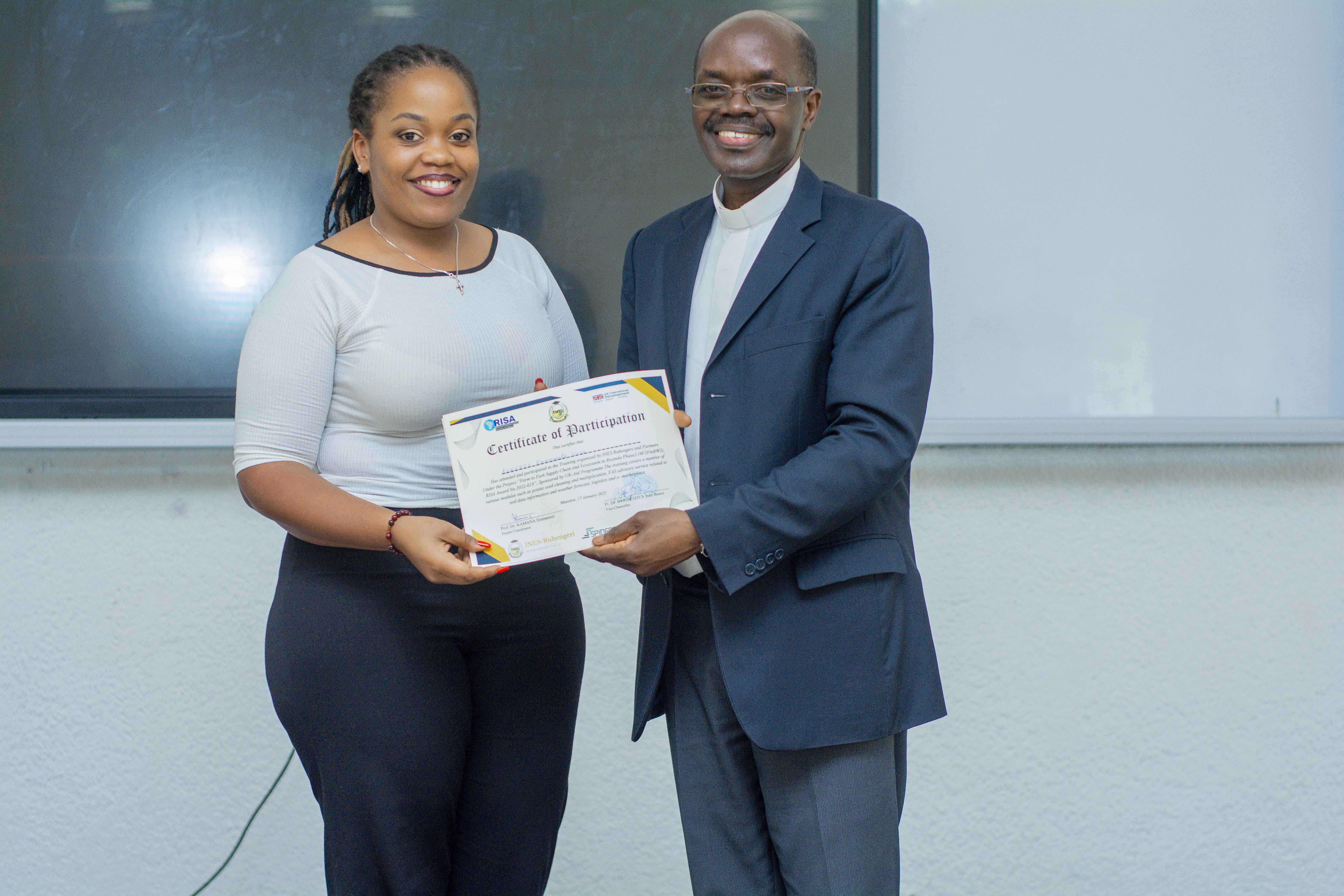
Originally launched on March 18, 2023, the project is funded by the Research and Innovation Systems for Africa (RISA) through UK-Chemonics. Its aim is to enhance productivity, sustainability, and market access for Rwandan farmers. Phase 2 (November 2024 – February 2025) focuses on improving livelihoods through inclusive, high-quality food production and sustainable farm-to-market solutions.
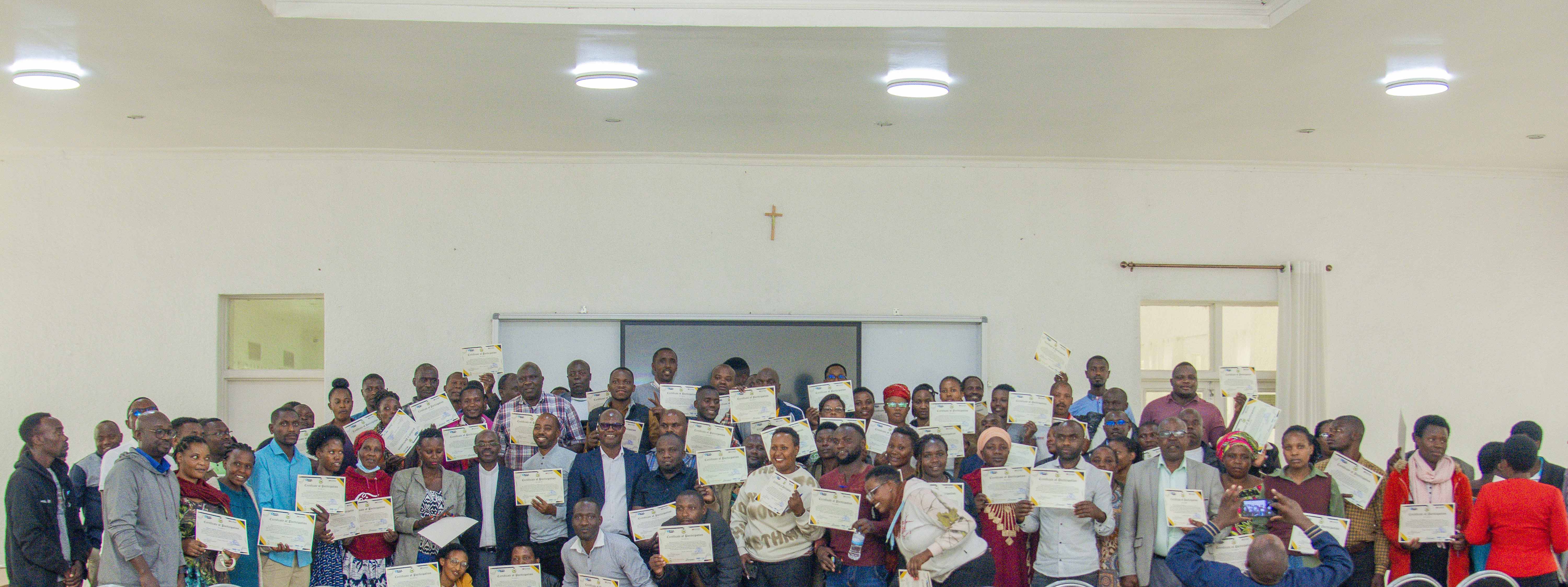
On February 10-13, 2025, Biomedical Laboratory Sciences (BLS) students gained practical exposure to…
LEARN NowIHIRWE Emmanuel and HABARUREMA Philbert for securing 3rd and 10th place in the Inter-University Wri…
LEARN NowIn a significant step towards fostering international collaboration and enriching student experienc…
LEARN Now